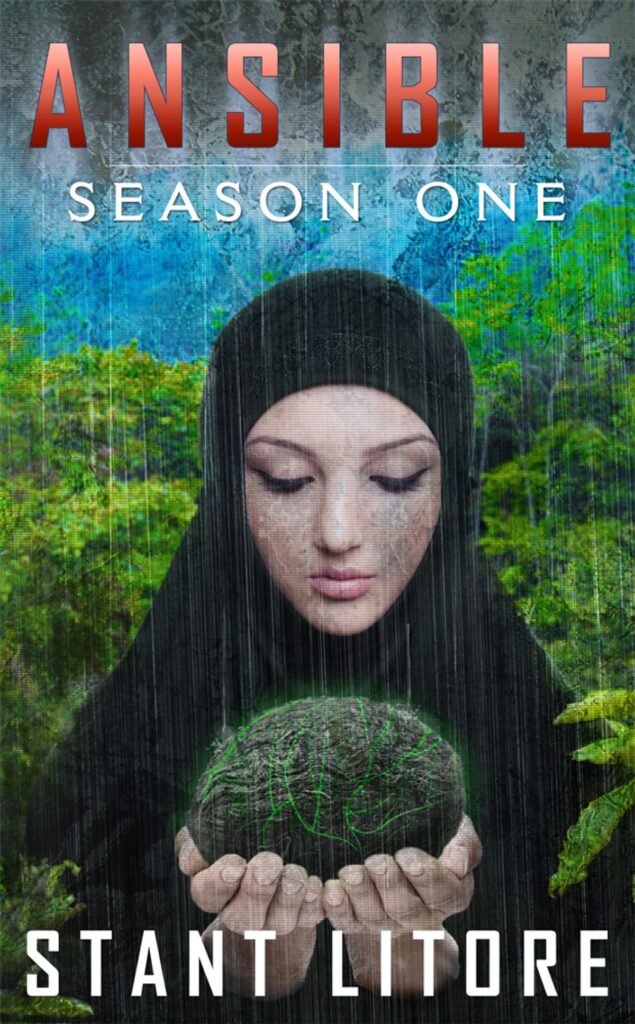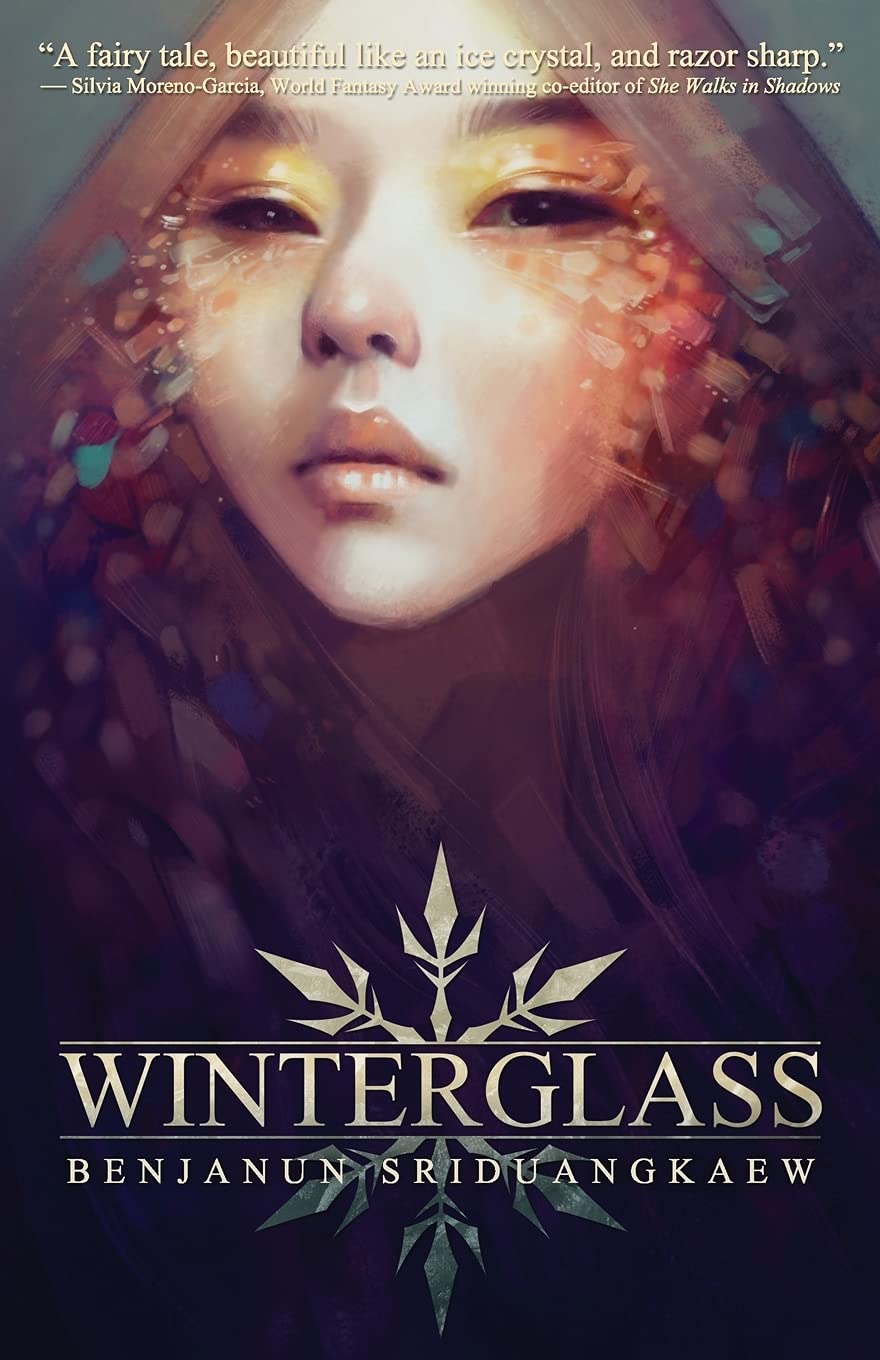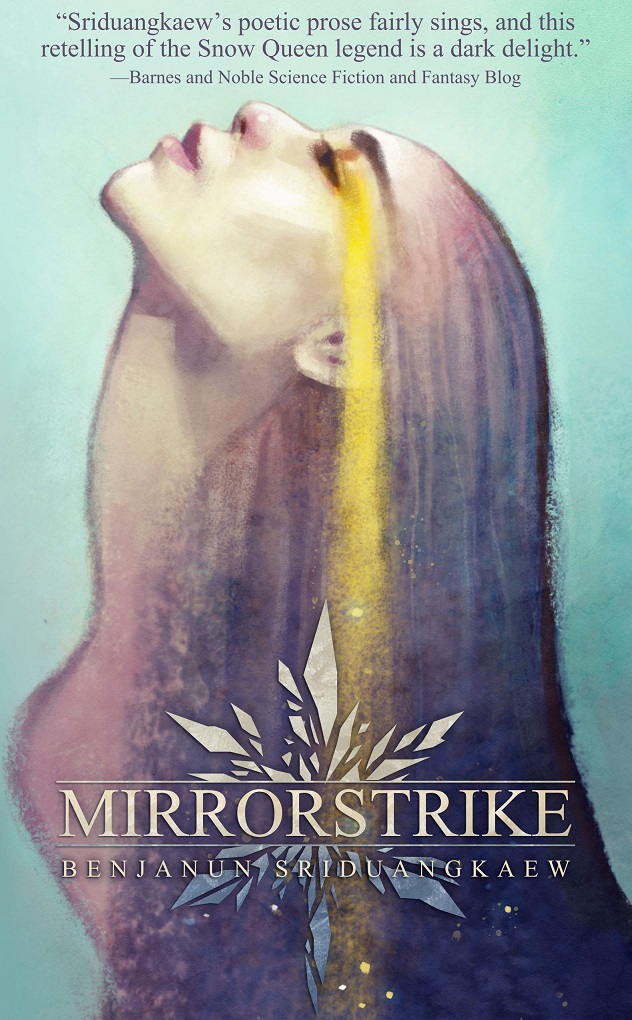
soupçon/ˈsuːpsɒn,ˈsuːpsɒ̃/ noun
1. a very small quantity of something; a slight trace, as of a particular taste or flavor
Sunday Soupçons is where I scribble mini-reviews for books I don’t have the brainspace/eloquence/smarts to write about in depth – or if I just don’t have anything interesting to say beyond I LIKED IT AND YOU SHOULD READ IT TOO!
Just two this week – although the first is a collection of short stories, and the second is a trilogy!

Genres: Queer Protagonists, Sci Fi
Representation: Muslim cast, Middle-Eastern cast, F/F
Goodreads

It is the twenty-fifth century. As in the early Middle Ages, the Islamic world is now the center for learning and scientific exploration. And the planet’s most ambitious project is Starmind, a research institute that transfers the minds of volunteers, called Ansibles, across gulfs of space and time to make first contact with other sentient beings in the universe.
Sometimes, this does not go well.
Each of the Ansible Stories follows one team of brave minds across the void. These are their reports, their transcripts, the only accounts of what they have found.
You should read them.
After all, Starmind might need you, too, and isn't it time you finally found out what’s out there?
ANSIBLE includes four of Stant Litore's Ansible Stories in one volume, including the never-before-published story "Ansible 2."
I wanted to write a quick warning about this one – not because it’s bad (anything but!) but because it’s fucking dark. I don’t recommend anyone read Ansible: Season One as a single volume; definitely buy the omnibus, if you’re interested (which you should be) since I can’t imagine anyone but horror fans continuing to read this series if this is all you have of it.
Does that make sense???
Happily, I do have the omnibus, and have been promised that it gets better. But I’ll talk about that when I’m done with the whole of Ansible and can review it properly.



Genres: Fantasy, Queer Protagonists
Representation: BIPOC sapphic MCs, trans MC, BIPOC cast, secondary nonbinary characters, F/F
Goodreads

The city-state Sirapirat once knew only warmth and monsoon. When the Winter Queen conquered it, she remade the land in her image, turning Sirapirat into a country of snow and unending frost. But an empire is not her only goal. In secret, she seeks the fragments of a mirror whose power will grant her deepest desire.
At her right hand is General Lussadh, who bears a mirror shard in her heart, as loyal to winter as she is plagued by her past as a traitor to her country. Tasked with locating other glass-bearers, she finds one in Nuawa, an insurgent who’s forged herself into a weapon that will strike down the queen.
To earn her place in the queen’s army, Nuawa must enter a deadly tournament where the losers’ souls are given in service to winter. To free Sirapirat, she is prepared to make sacrifices: those she loves, herself, and the complicated bond slowly forming between her and Lussadh.
If the splinter of glass in Nuawa’s heart doesn’t destroy her first.
More than anything else, it’s Sriduangkaew’s prose that makes this trilogy absolutely breathtaking; it’s lush and gorgeous, elevating a story we’ve seen a thousand times before – someone raised to be an assassin out to get close to the monarch they were groomed to destroy – into something gods-damn legendary. Each novella is a jewelled mosaic, and together they form a triptych that shines like opal and ice.
winter colors, the gleam and the glare.
The story is superficially simple – the unhuman Winter Queen has been conquering the known world one land at a time, including Sirapirat, a country who so fiercely defended their tropical climate that they’ve been ground beneath the Queen’s heel ever since. Nuawa is the daughter of revolutionaries who raised her to destroy the Queen, and she gains the beginning of an opportunity when it is announced that Sirapirat will be hosting the next tribute game – a fierce tournament where the winner is inducted into the Queen’s inner circle. Nuawa has no idea, however, that the Queen is looking for something far more than mere martial skill from the winner.
Nuawa is nothing if not a quick study, a chameleon of thought-schools.
It’s a story inspired by the Hans Christian Anderson fairytale The Snow Queen (I say inspired by rather than calling it a retelling because this trilogy is so much itself that calling it a retelling feels disingenuous). We have the Winter Queen, and a magical mirror that has been broken, and whose shards have scattered across the world, embedding themselves in human beings and altering them in subtle and not-so-subtle ways. Everything else is wholly Sriduangkaew’s, and it is stunning! The worldbuilding!!! The worldbuilding is enough to make me spin in a circle and swoon. Technology powered by ghosts, swords that damage the body by slicing up its shadow, snow-maidens and gods – Sriduangkaew seems to have wanted to write not just beautiful fantasy, but fantasy that is beautiful – even as ugly and terrible things are going on, the prose and the details of this world conspire to enchant.
viper locks, serpent curlicues whose fangs drip venom in slow, clear beads. Lussadh clicks her tongue and makes staccato claps, timed to a specific rhyme; the serpents unlatch, falling into limp hibernation.
And it’s just so unapologetically queer. All of the MCs are sapphic, and over the course of the trilogy we meet several important nonbinary characters; not only that, but Sriduangkaew takes what I can only call a queer approach to sex as well; more than a little kinky, a little boundary-pushing – although tame compared to, say, her novella Now Shall Machines Devour the Beast – but that’s a discussion for another time!
Sriduangkaew also touches on how complicated colonialism and freedom are, how it’s rarely black and white. (After the invasion, anyway – I can’t think of many scenarios where I could see an invasion as anything other than awful.) Lussadh, the Queen’s General, was a prince who ‘betrayed’ her country to the Queen, and years later still isn’t sorry for it, for some pretty good reasons;
But Sirapirat’s citizens live well now, granted access to greater comforts and conveniences than they ever had before. “And my grandaunt’s subjects live under fairer terms,” she says to a dark corner where Ytoba might inhabit. “They live more justly. There are no more inheritances of power, of wealth born into. Before winter, all are equal, whether scions of the dynasty or of the enamel. The least laborer’s child is given the same education as the most opulent landlord’s scion. If you think the queen cruel, still she does not pursue petty power. She will not execute a servant’s clan because they spilled milk on her or broke her favorite vase. Do you understand, Ytoba? Life under the Kemiraj throne was fine enough for you, for me. For most of the country, it was a charnel house.”
I’ve seen critiques of the ending of the final book, but I was satisfied with it, and all three of these novellas have gone straight onto my favourites shelf. I’ve been enjoying Sriduangkaew’s sci-fi too, but I hope she comes back to fantasy eventually – I definitely need more of her magical take on magic!
Have you read either of these, or plan to? Let me know!







Leave a Reply